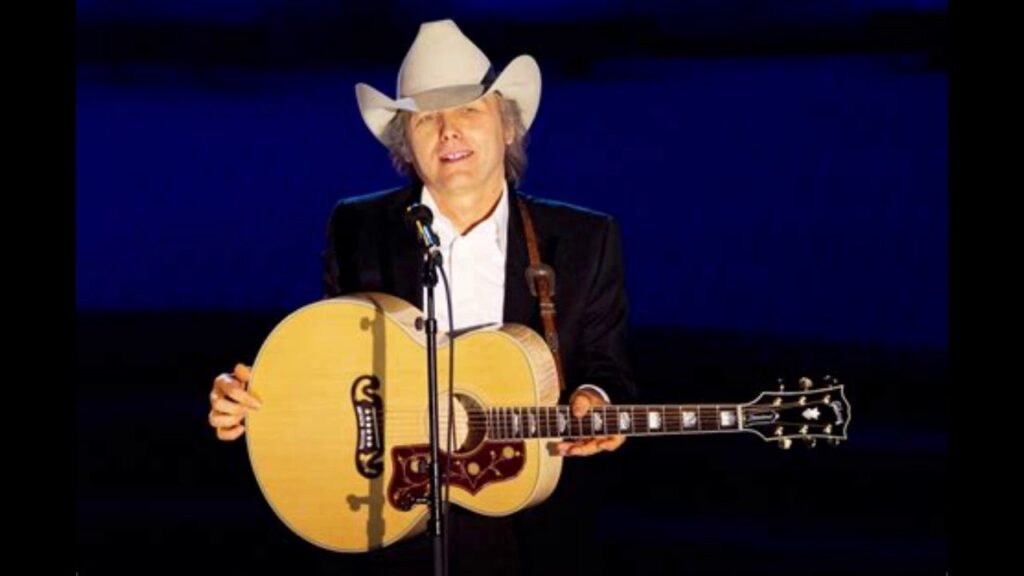
A debtor’s hymn in a honky-tonk ledger—love as property, apology as payment, and a grown man’s promise to keep paying what he owes.
Essentials up front. Song: “The Heart That You Own.” Artist: Dwight Yoakam. Album: If There Was a Way (Reprise). Single released: April 20, 1992 (the album itself arrived October 30, 1990). Writer: Dwight Yoakam. Producer: Pete Anderson. Chart peaks: No. 18 on Billboard Hot Country Songs (U.S.); No. 13 on RPM Country Tracks (Canada). Music video: directed by Neil Abramson (early 1992).
Where it sits in the story. By the time If There Was a Way rolled out, Yoakam and producer-guitarist Pete Anderson had already re-introduced Bakersfield snap to big-room country. That 1990 LP became a steadied run of radio moments—“Turn It On, Turn It Up, Turn Me Loose,” “You’re the One,” “Nothing’s Changed Here,” “It Only Hurts When I Cry”—with “The Heart That You Own” arriving as the fifth single and still muscling into the Top 20 in 1992. It’s Track 2 on the album—early placement, on purpose—so the theme of accountability in love rings out before the record dives into its other bruises and bravado.
What the song says. Yoakam writes in plain language and clean lines, turning a familiar metaphor into something lived-in: a heart treated like a house that needs tending, ownership carrying the weight of responsibility rather than possession. The narrator isn’t swaggering; he’s itemizing—admitting what’s past due, promising to balance the books. That’s why older listeners hear themselves in it: the romance is real, but it’s anchored to chores, rent, and the quiet work of staying. When the chorus lifts, it isn’t fireworks; it’s a hand extended across a kitchen table.
How it sounds. Anderson’s production keeps everything lean and un-fussy: Telecaster snap answering Yoakam’s vocal, a rhythm section that pushes without hurrying, steel and fiddle used as punctuation instead of perfume. Yoakam sings just behind the beat—his trademark laid-back drawl—so the plea feels human, not theatrical. You can trace the aesthetic right back to the Anderson–Yoakam partnership: modern radio clarity wrapped around the old Bakersfield virtues of discipline, pocket, and twang. The credit lines and discography trails make it plain—Anderson was the steady hand at the console while Yoakam kept the pen honest.
Why it connected. Hitting No. 18 in the U.S. and No. 13 in Canada might look modest against bigger Yoakam smashes, but it’s exactly the kind of record that keeps a career warm between peaks: a sturdy mid-tempo single that says something true out loud, then leaves you humming the title line while you fold the laundry. The charts bear out that sturdy run; If There Was a Way kept sending singles to radio through 1992, and this cut’s performance sits comfortably alongside its companions.
A note on the pictures we carry. If you remember the video—black hat, clean framing, Yoakam’s band set up like a working unit rather than a prop—there’s a reason. Director Neil Abramson keeps the lens on the singer’s face and the guitar’s time, letting the lyric do the heavy lifting. No storyline, no gimmick; just the man, the band, and the vow. That choice has aged well. When the set dressing falls away, what remains is the feeling that you’ve walked into a room where someone is telling the truth.
Place it in your memory. For fans who were there, 1990–92 felt like Yoakam’s long stride: Reprise on the spine, Anderson on the board, radio still hospitable to songs that made space for heartbreak and responsibility. “The Heart That You Own” distills that moment. It’s not a barn-burner, not a novelty—it’s a durable, mid-tempo promise. Spin it now and the old textures come right back: the Telecaster’s dry bite, the drum kit that sounds like wood and skin, the vowel-rich baritone that turns a plea into a kind of prayer you can two-step to.